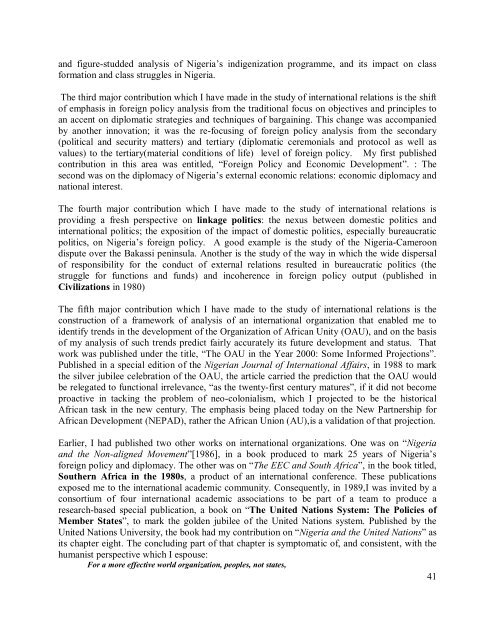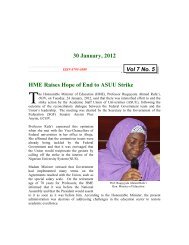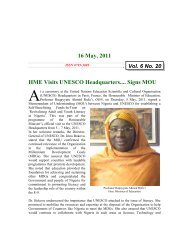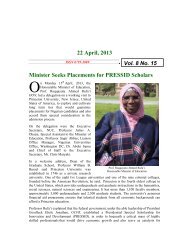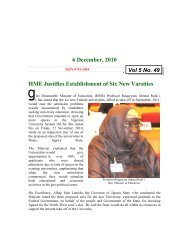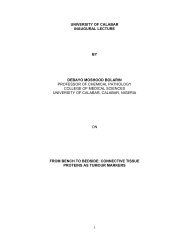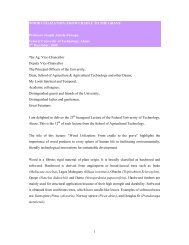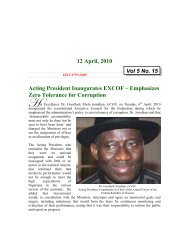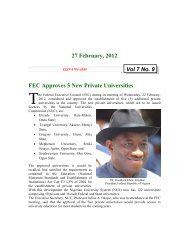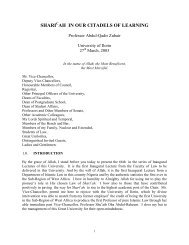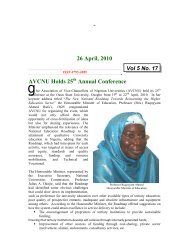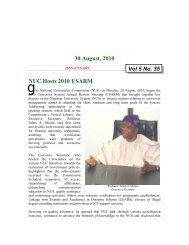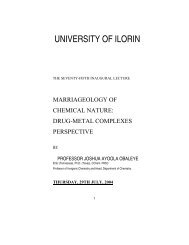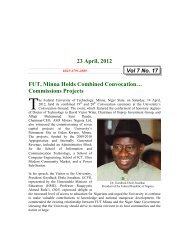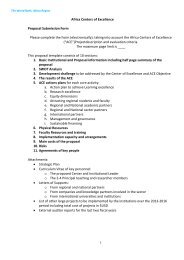From State And State Power To Man And Social - National ...
From State And State Power To Man And Social - National ...
From State And State Power To Man And Social - National ...
You also want an ePaper? Increase the reach of your titles
YUMPU automatically turns print PDFs into web optimized ePapers that Google loves.
and figure-studded analysis of Nigeria’s indigenization programme, and its impact on classformation and class struggles in Nigeria.The third major contribution which I have made in the study of international relations is the shiftof emphasis in foreign policy analysis from the traditional focus on objectives and principles toan accent on diplomatic strategies and techniques of bargaining. This change was accompaniedby another innovation; it was the re-focusing of foreign policy analysis from the secondary(political and security matters) and tertiary (diplomatic ceremonials and protocol as well asvalues) to the tertiary(material conditions of life) level of foreign policy. My first publishedcontribution in this area was entitled, “Foreign Policy and Economic Development”. : Thesecond was on the diplomacy of Nigeria’s external economic relations: economic diplomacy andnational interest.The fourth major contribution which I have made to the study of international relations isproviding a fresh perspective on linkage politics: the nexus between domestic politics andinternational politics; the exposition of the impact of domestic politics, especially bureaucraticpolitics, on Nigeria’s foreign policy. A good example is the study of the Nigeria-Cameroondispute over the Bakassi peninsula. Another is the study of the way in which the wide dispersalof responsibility for the conduct of external relations resulted in bureaucratic politics (thestruggle for functions and funds) and incoherence in foreign policy output (published inCivilizations in 1980)The fifth major contribution which I have made to the study of international relations is theconstruction of a framework of analysis of an international organization that enabled me toidentify trends in the development of the Organization of African Unity (OAU), and on the basisof my analysis of such trends predict fairly accurately its future development and status. Thatwork was published under the title, “The OAU in the Year 2000: Some Informed Projections”.Published in a special edition of the Nigerian Journal of International Affairs, in 1988 to markthe silver jubilee celebration of the OAU, the article carried the prediction that the OAU wouldbe relegated to functional irrelevance, “as the twenty-first century matures”, if it did not becomeproactive in tacking the problem of neo-colonialism, which I projected to be the historicalAfrican task in the new century. The emphasis being placed today on the New Partnership forAfrican Development (NEPAD), rather the African Union (AU),is a validation of that projection.Earlier, I had published two other works on international organizations. One was on “Nigeriaand the Non-aligned Movement”[1986], in a book produced to mark 25 years of Nigeria’sforeign policy and diplomacy. The other was on “The EEC and South Africa”, in the book titled,Southern Africa in the 1980s, a product of an international conference. These publicationsexposed me to the international academic community. Consequently, in 1989,I was invited by aconsortium of four international academic associations to be part of a team to produce aresearch-based special publication, a book on “The United Nations System: The Policies ofMember <strong>State</strong>s”, to mark the golden jubilee of the United Nations system. Published by theUnited Nations University, the book had my contribution on “Nigeria and the United Nations” asits chapter eight. The concluding part of that chapter is symptomatic of, and consistent, with thehumanist perspective which I espouse:For a more effective world organization, peoples, not states,41


